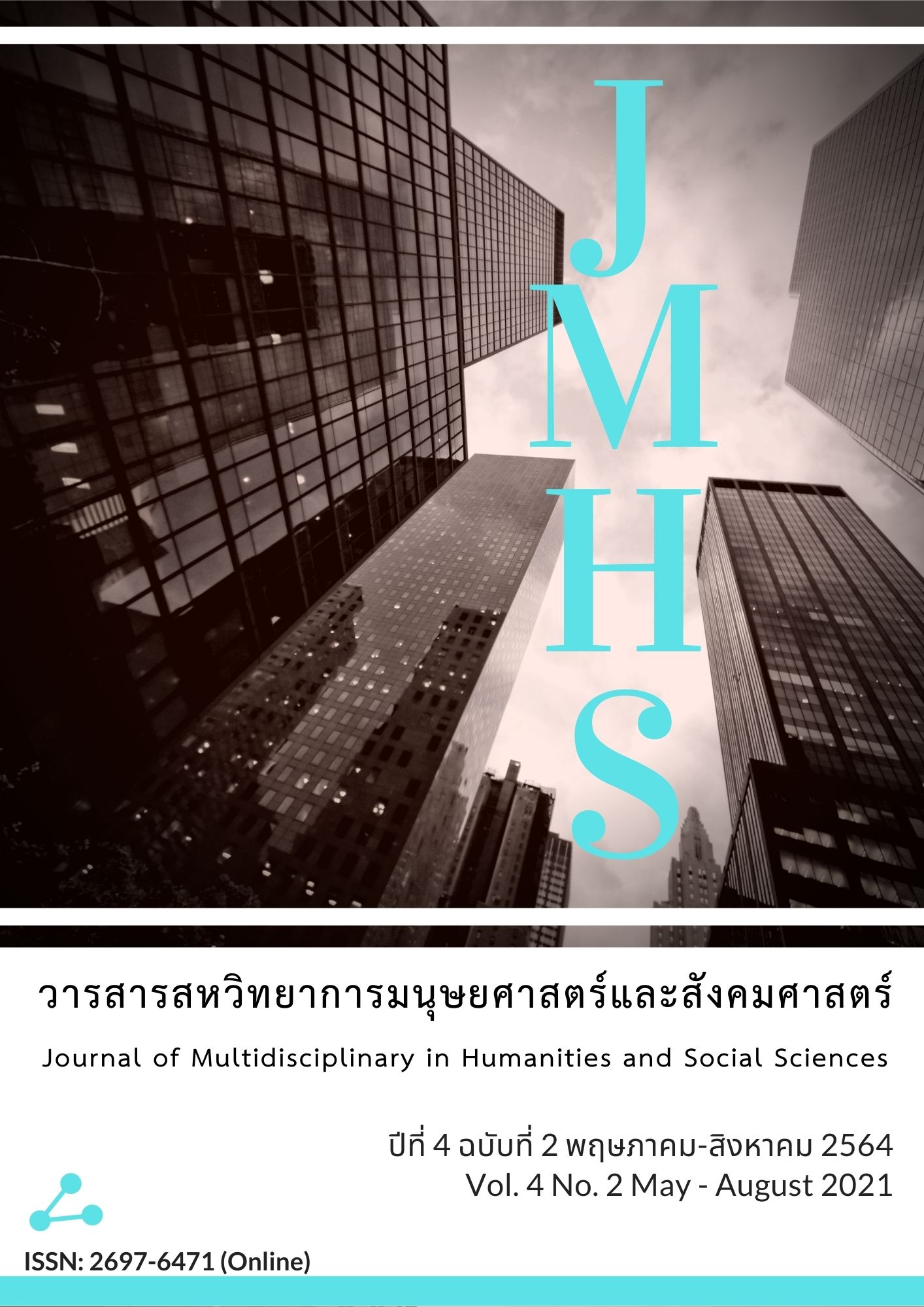Development of Manual for Stress Management of Government Teachers and Education Personal of Bangkok
Main Article Content
Abstract
The objectives of this research were: 1) to study the stress of government teachers and education personal of Bangkok; and 2) to develop the manual for stress management of Government teachers and education personal of Bangkok. Qualitative methodology was used to inform a case study. The key informants were collected include 5 Government teachers and education personal of Bangkok by purposive sampling. Research tools were 1) The data were collected by in-depth interview of structured Interview, and 2) the studied related documents, theories, and related researches. Qualitative data analysis techniques in content analysis, typological analysis, component analysis, data organizing, and summary of data relationship.
The result showed that 1) stress of Government teachers and education personal of Bangkok refers to the emotions of the personnel related to pressure and uneasiness to lose their equilibrium which is resulted in physical, psychological, and behavioral changes; 2) stress management manual for Government teachers and education personal of Bangkok consisted of 10 development programs included 18 activities; and 3) average of the Index of Item– objective congruence as a whole (0.985) and content validity ratio as a whole (1.00).
Article Details
Views and opinions appearing in the Journal it is the responsibility of the author of the article, and does not constitute the view and responsibility of the editorial team.
References
กรมสุขภาพจิต. (2546). คุณภาพชีวิตและความเครียดของนักเรียนมัธยมศึกษาในประเทศไทย. กรุงเทพฯ: บียอนด์พับลิสชิ่ง.
กรมสุขภาพจิต. (2564). สลดปี 63 ตัวเลขคนไทยฆ่าตัวตายสูงลิ่ว กรมสุขภาพจิตแนะสำรวจตนเอง. สืบค้นเมื่อ 5 มีนาคม 2564, จาก https://www.dmh.go.th/news-dmh/view.asp?id=30594
ข่าวมติชนออนไลน์. (2564). ‘ณัฏฐพล’ ย้ำ ผอ.-ครูให้การบ้านนักเรียนช่วงโควิดอย่างเหมาะสม หวั่นเด็กเครียด. สืบค้นเมื่อ 4 มีนาคม 2564, จาก https://www.matichon.co.th/education/news_2514438
ข่าวไทยพีบีเอส. (2564). COVID-19 ระลอกใหม่ ทำคนไทยเครียดขึ้น แนะฉีด “วัคซีนใจ”. สืบค้นเมื่อ 3 มีนาคม 2564, จาก https://news.thaipbs.or.th/content/300042
ข่าวไทยรัฐ. (2564). โควิดระลอกใหม่กระทบพัฒนาการเด็ก ครูเครียดค่าใช้จ่ายเพิ่ม. สืบค้นเมื่อ 5 มีนาคม 2564, จาก https://www.thairath.co.th/news/society/2034161
น้ำทิพย์ จรรยาธรรม. (2559). เทคนิคการสัมภาษณ์เชิงลึกในการวิจัยทางการศึกษา. สืบค้นเมื่อ 3 มีนาคม 2564, จาก https://library.ipst.ac.th/handle/ipst/4960
บุญเรียง ขจรศิลป์. (2545). สถิติวิจัย I. กรุงเทพฯ: หจก. พีเอ็น การพิมพ์.
ประสพชัย พสุนนท์. (2558). ความเที่ยงตรงของแบบสอบถามสำหรับงานวิจัยทางสังคมศาสตร์. วารสารสังคมศาสตร์, 18, 375-396.
ปิยะฉัตร นาคประสงค์. (2550). ผลของโปรแกรมการใช้อารมณ์ขันเพื่อลดความเครียดของวัยรุ่น (วิทยานิพนธ์การศึกษามหาบัณฑิต). มหาวิทยาลัยศรีนครินทรวิโรฒ.
พระราชบัญญัติระเบียบข้าราชการกรุงเทพมหานครและบุคลากรกรุงเทพมหานคร พ.ศ. 2554. (2554, 27 พฤษภาคม). ราชกิจจานุเบกษา. เล่ม 128 ตอนที่ 42 ก. หน้า 2.
สมภพ เรืองตระกูล. (2547). ความเครียดและอาการทางจิตเวช. กรุงเทพฯ: เรือนแก้วการพิมพ์.
สุภางค์ จันทวานิช. (2540). วิธีการวิจัยเชิงคุณภาพ. (พิมพ์ครั้งที่ 7). กรุงเทพฯ: จุฬาลงกรณ์มหาวิทยาลัย.
อัญชลี. (2563). กรมสุขภาพจิตเผยผลกระทบของสถานการณ์การแพร่ระบาดของโรค COVID-19 ส่งผลต่อเด็กและเยาวชน. สืบค้นเมื่อ 5 มีนาคม 2564, จาก http://www.prdmh.com/
เสาวลักษณ์ ภารชาตรี. (2551). ผลของโปรแกรมส่งเสริมความยืดหยุ่นทางอารมณ์ต่อความเครียดของนักเรียนที่เตรียมตัวสอบเข้ามหาวิทยาลัย(วิทยานิพนธ์พยาบาลศาสตรมหาบัณฑิต). มหาวิทยาลัยเชียงใหม่.
American Psychological Association. (2020). Stress in the Time of COVID-19. Retrieved March 7, 2021, from https://www.apa.org/news/press/releases/stress/2020/stress-in-america-covid.pdf.
Berry, Rita S. Y. (1999). Collecting Data by In-Depth Interviewing. Retrieved March 7, 2021, from http://www.leeds.ac.uk/educol/documents/000001172.html
Bollen, K. A. (1989). Structural Equations with Latent Variables. North Carolina: John Wiley & Sons, Inc.
Lawshe, C. H. (1975). A Quantitative Approach to Content Validity. Personnel Psychology, 28, 563-575.
Lazarus, R. S. & Folkman, S. (1984). Stress Appraisal, and Coping. New York: Springer Publishing.


